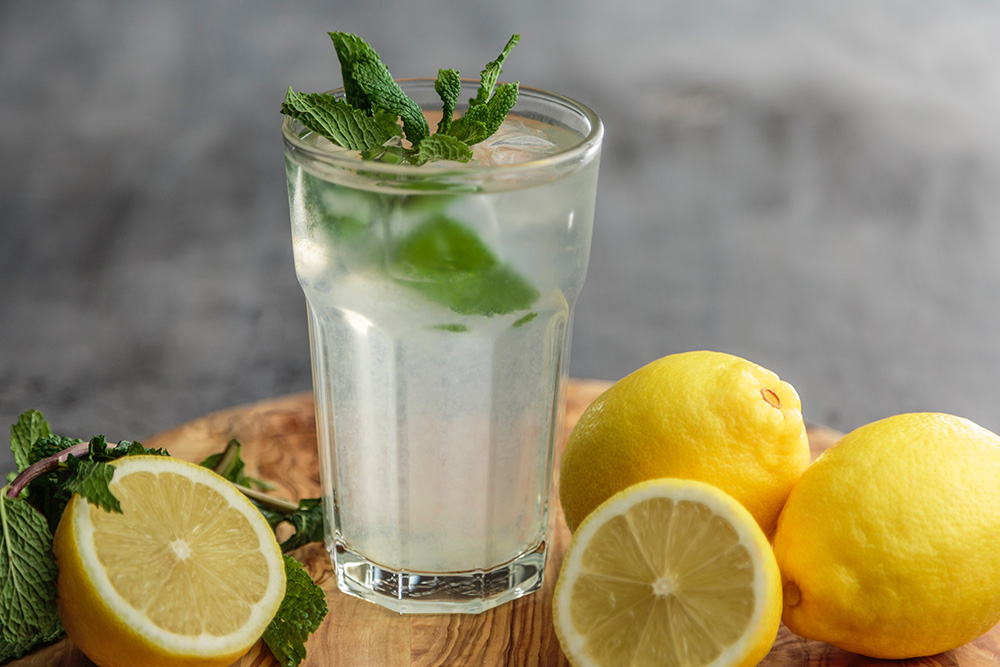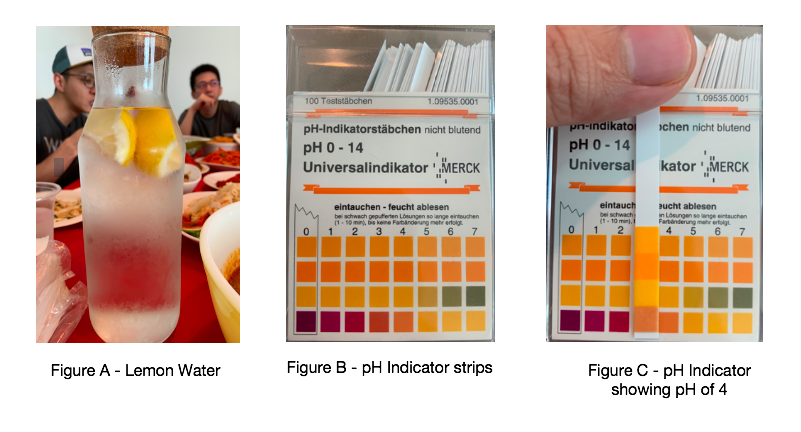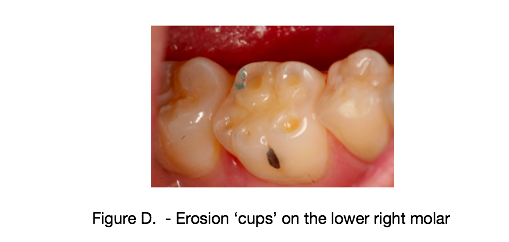From losing weight to supplementing our daily vitamin C requirements, consuming lemon water related beverages have fast become a daily staple for many Singaporeans. It is not surprising, considering the ease of making lemon water and the ample health benefits it provides.
But did you know – it’s not all sunshine and rainbows when it comes to lemon water and your teeth!
To understand why, we first have to examine what our teeth are made of.
The outer layer of teeth is made up of a highly mineralised structure known as enamel. As with any highly mineralised structure, enamel is very prone to corrosion when exposed to acids – this is a process known as DE–mineralisation. Thankfully, our mouths produce saliva which help to neutralise this acid corrosion process. However, when there is a prolonged exposure of our teeth to acids, the resulting DE–mineralisation of enamel translates into a visible cavity on our teeth.
Demineralisation = Saliva neutralization
Demineralisation > saliva neutralisation
Q: Well, so what does this have to do with lemon water?
Lemon juice has a very low pH of 2, meaning that it is highly acidic and corrosive.
Many of us would counter that lemon water is very diluted, and hence must be much less acidic than pure lemon juice. To verify this we performed a simple experiment using lemon water and pH paper ( a device used to measure the acidity of the substance in question)
Figure A – Half a lemon was placed in a jug with 750ml of tap water. This was allowed to sit for 30 minutes. The pH of the lemon water was subsequently tested using pH paper.
Figure B – pH Indicator strips. Colour patterns indicative of the pH.
Figure C – Test result. Indicator strip showing the Lemon water to have a pH of 4.
Q: So lemon water produced a pH of 4. Some will question and say – ‘isn’t pH 4 less acidic than pH 2 (that of pure lemon juice)? Doesn’t that actually mean lemon water is ok?’
Well not exactly…
Acid corrosion of enamel begins when the acidity falls below pH 5.5. As such, at a pH of 4, lemon water is still very much capable of corroding enamel! When one consumes too much acidic foods, enamel erosion lesions can form such as those depicted before in figure D.
Q: Does this mean that we have to avoid lemon water or any other acidic foods/beverages at all costs?
Well not exactly again…
The process of DE-mineralisation and RE-mineralisation occurs constantly. A detectable cavity only forms when the DE-mineralisation process exceeds the saliva’s ability to RE-mineralise the enamel surface.
As such, as long as we do not over-expose our teeth to acidic foods/beverages, our saliva is more than capable of repairing the DE-mineralised surfaces.
Tips to avoid acid erosion lesions:
- Try not to prolong the consumption of your acidic foods/beverages (i.e. Instead of consuming your bottle of lemon water over a 2-3 hour period, try to finish it in 0.5-1 hour). A shorter total duration means less exposure of your enamel to acid corrosion.
- Drink lemon water through a straw – that way the acid bypasses your teeth to the back of your throat.
- Rinse your teeth with plain water after consuming lemon water – this is to rinse away any residual acid that may be remaining on the surfaces of your teeth.
- Visit your dentist regularly every 6 months to check and examine if your teeth are eroding – your dentist will evaluate your dietary habits and suggest the necessary changes.






